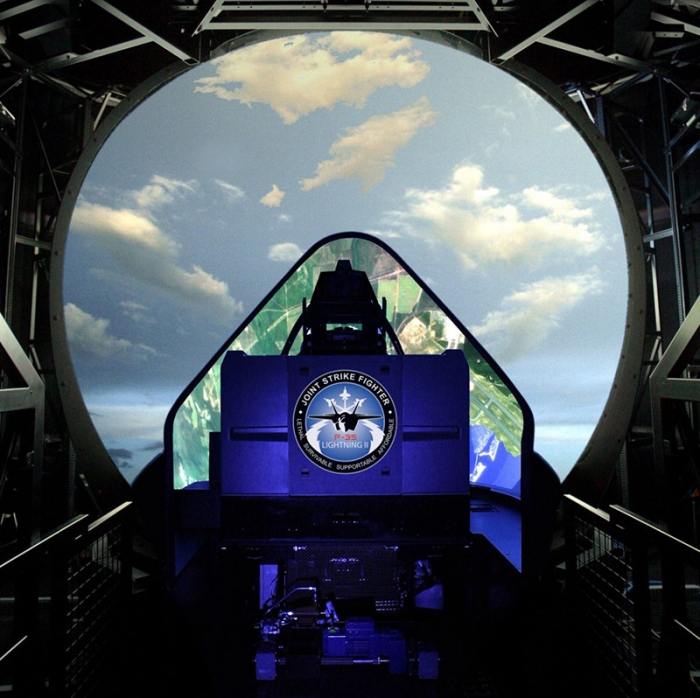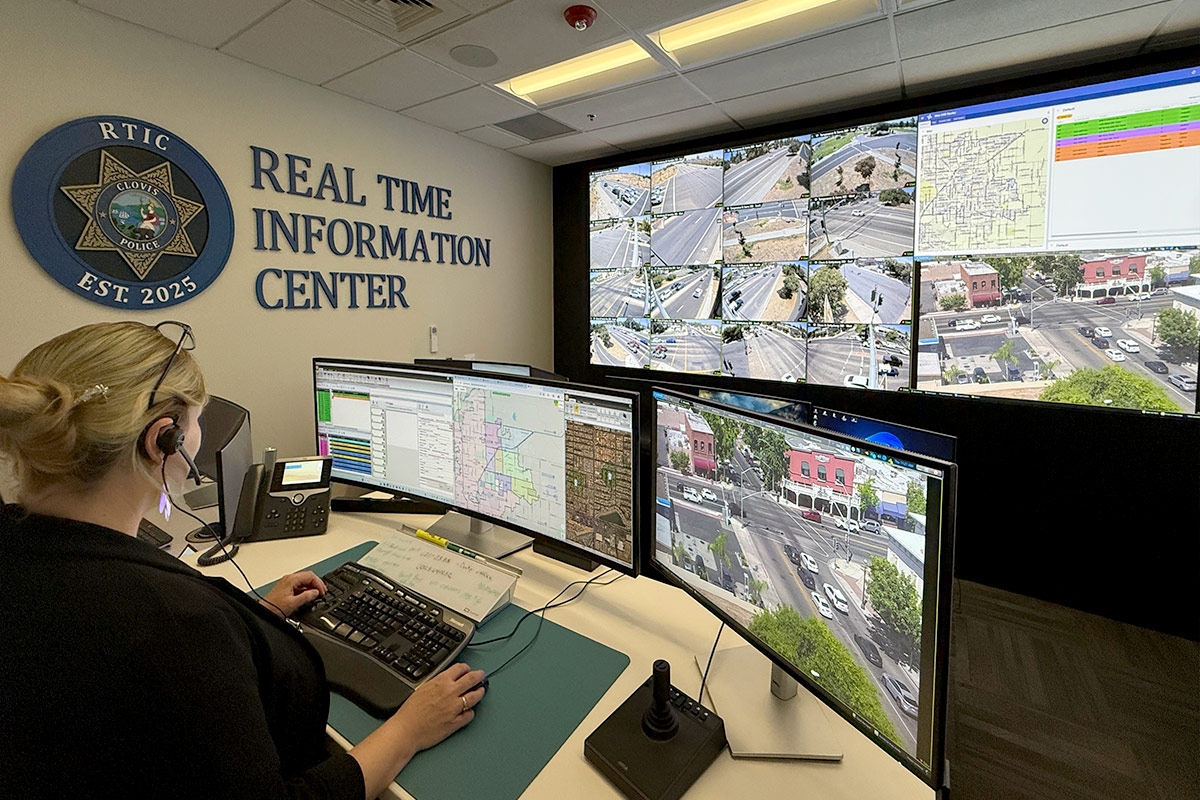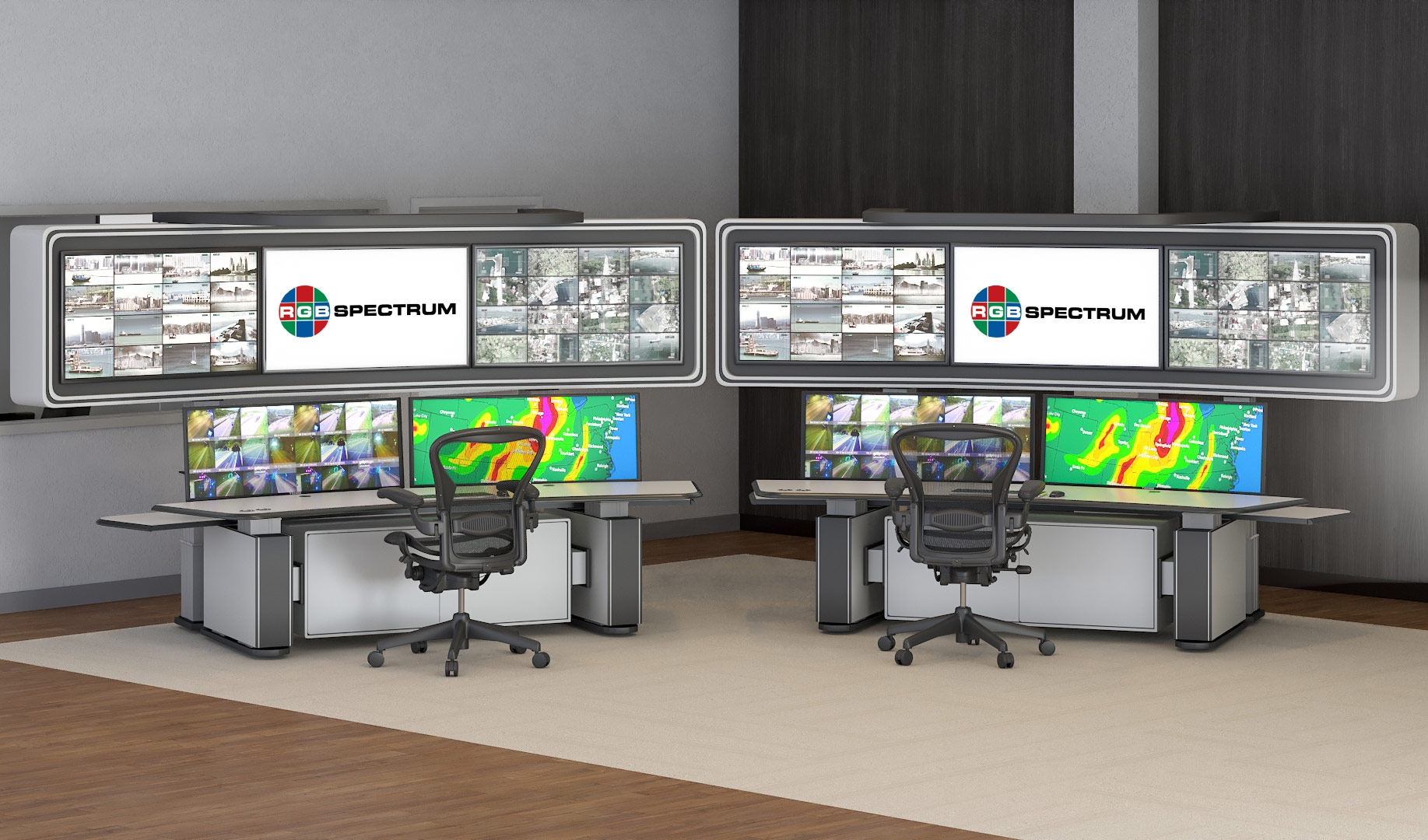F-35 Pilot Training Uses Advanced Simulation Technology
The F-35 Joint Strike Fighter is the Department of Defense's next generation strike aircraft weapon system for the Navy, Air Force, Marines, and US allies. The fifth generation fighter brings cutting-edge technologies to the battlespace of the future. On July 31, 2015, the first squadron was declared ready for deployment after training, an important part of which was accomplished with Lockheed Martin’s high-fidelity Full Mission Simulator (FMS). RGB Spectrum's DGy recording and streaming codecs and multi-channel video servers are core components in the FMS.
To date, a dozen nations have requested over 3,000 F-35 aircraft, and as of January 19, 2016, 24 simulators carrying RGB Spectrum DGy codecs have been delivered to seven locations, with 63 more on contract. In 2018, pilot training systems will be in Japan, Norway, the UK and Australia with training scheduled to begin in 2019. The F-35 program requires simulation more than any other program in history in part due to the advanced capabilities of the aircraft, but also because training aircraft (two passenger version with one instructor and one pilot-in-training) are not available by design. Therefore, it is the FMS that provides pilots with a broad range of virtual experience in air-to-air, air-to-ground, and electronic warfare missions. When a pilot flies a combat mission for the first time in foreign territory, he will already have flown it many times in a simulator.
DGy codecs are ideally suited for deployment in advanced simulation training technology. The codecs offer an unparalleled feature set that includes external time code synchronization (IRIG-B or Network Time Server), event marking, random access, variable speed playback, and frame-by-frame jog/shuttle. Also standard on the DGy is an exclusive, failsafe feature that automatically protects recordings even during catastrophic system failure in the FMS. Event marks can be inserted at key instances during both the recording process and debriefing replay and provide easy access to desired marked points in the After Action Review (AAR). Other key advantages are the innovative JPEG 2000 compression that produces visually lossless streaming and recording and a unique ability to record each individual frame, thus preserving the most intricate detail of the training flight for the AAR.
At resolutions up to 1920x1200, the DGy codecs simultaneously stream and record all visuals and data the pilots observe during live simulation exercises including avionics, navigation, out-the-window imagery, target acquisition, and weapons control. The codecs’ streams are transmitted to the Instructor's Operator Station (IOS) where instructors view exactly what the pilots are seeing in real-time. Concurrently, these simulation visuals are recorded to the multicast video servers (MVS) for central storage and management and reviewed by instructors and mission crews at the AAR to assess the pilot’s performance.
The F-35 FMS brought pilot combat training into the 21st century with its ability to network and share vital information with cyber assets and other aircraft. With the aid of DGy JPEG 2000 recording and streaming codecs and MVS, the sophisticated FMS allows a pilot to experience a greater variety of scenarios than live training. More than 50% of initial qualification flights will take place in the simulator.
For more information on the Joint Strike Fighter F-35 program, visit www.jsf.mil
RGB Spectrum is a leading designer and manufacturer of mission-critical, real-time audio-visual solutions for a civilian, government, and military client base. The company offers integrated hardware, software, and control systems to satisfy the most demanding requirements. Since 1987, RGB Spectrum has been dedicated to helping its customers achieve Better Decisions. Faster.™


